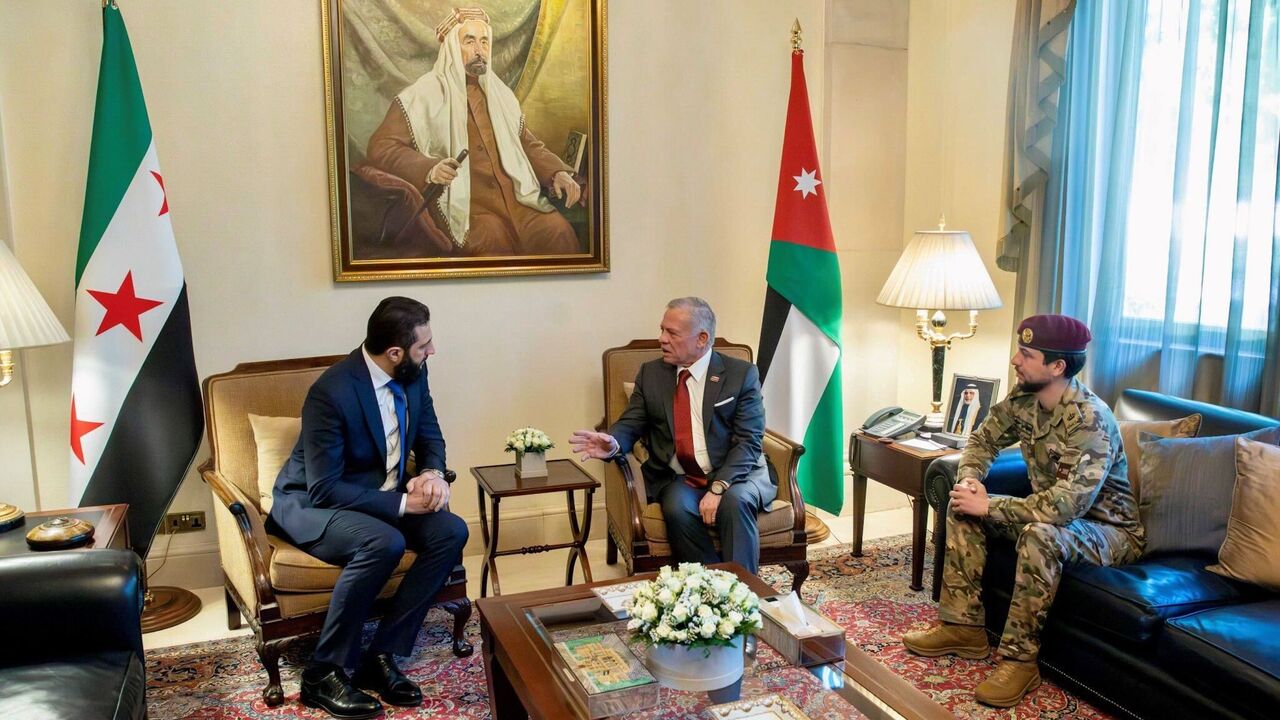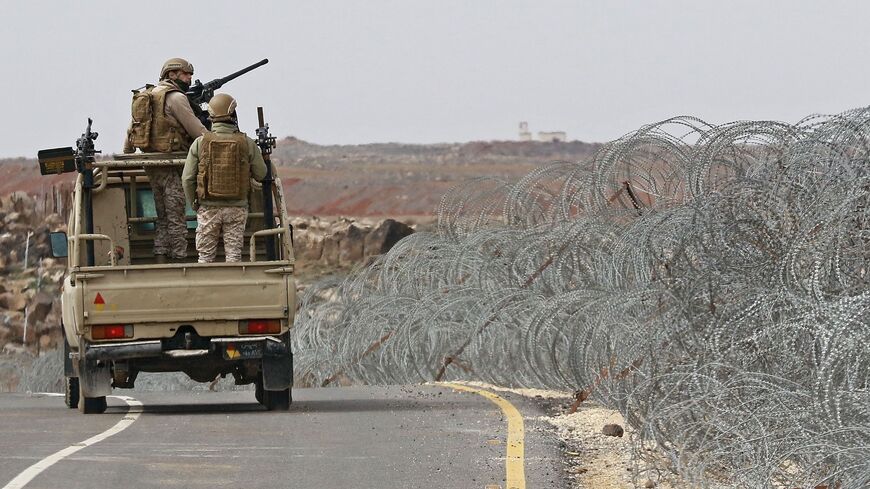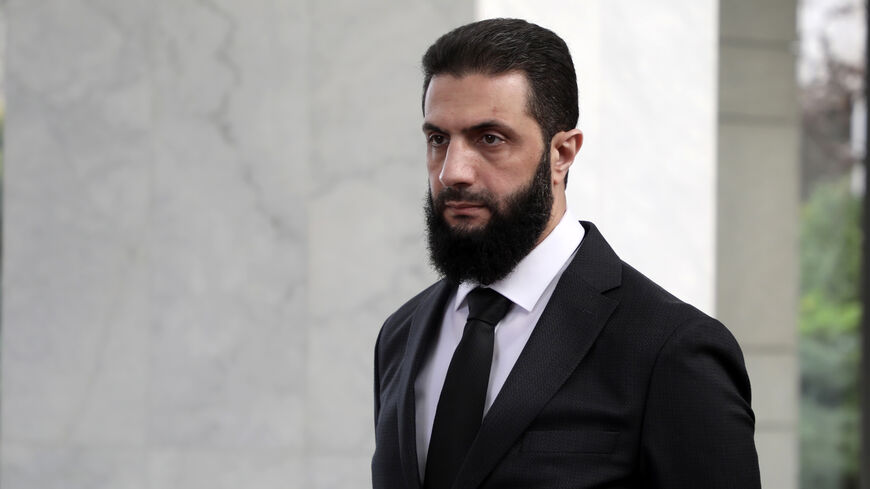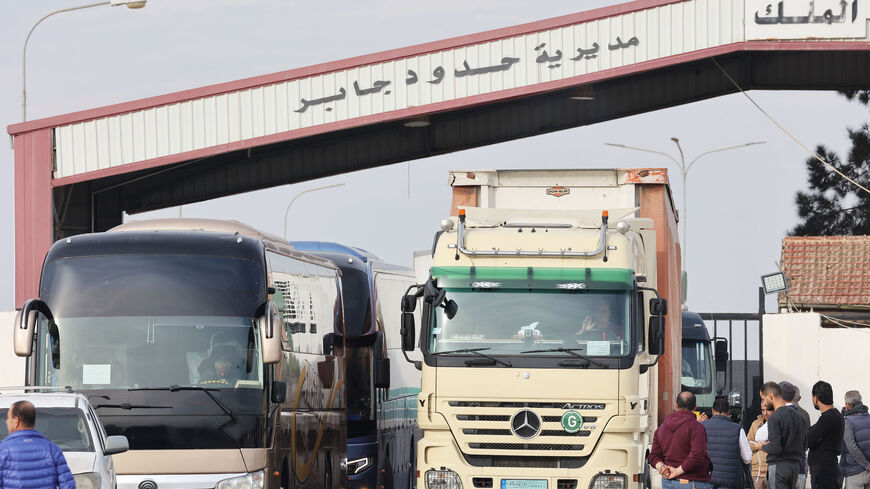Jordan’s king hosts Sharaa amid Israeli escalation in Syria
Syrian President Ahmed al-Sharaa arrived in Jordan on Wednesday, his third foreign visit since taking office, while Israeli airstrikes targeted military positions in Syria.

Syrian President Ahmed al-Sharaa arrived Jordan on Wednesday, his third foreign trip since his appointment in January following the fall of the Assad regime.
Sharaa, accompanied by Syrian Foreign Minister Asaad al-Shibani and a number of officials, was received by Jordan’s King Abdullah II at Marka Airport in Amman.
جلالة الملك عبدالله الثاني يستقبل الرئيس السوري أحمد الشرع لدى وصوله إلى مطار ماركا في زيارة للمملكة #الأردن #سوريا
His Majesty King Abdullah II receives #Syria President Ahmed Al Sharaa at Marka Airport#Jordan pic.twitter.com/64KTlnNUNM— RHC (@RHCJO) February 26, 2025
The two leaders held talks at the Raghadan Palace on cooperation between their countries in various fields, including in trade, energy and water, the Royal Court said in a statement.
King Abdullah stressed Jordan’s support for “Syrians to rebuild their country in a way that involves all components of Syrian society and guarantees Syria’s unity, security and stability,” according to the same statement.
The Jordanian monarch also condemned the recent Israeli incursions on Syrian territory, reiterating his country’s support for Syria’s sovereignty.
Sharaa’s visit to Jordan came just after a series of Israeli airstrikes hit Damascus and south Syria late on Tuesday. The Israeli military said it struck a number of military sites in the southern province of Daraa it claimed contained weapons. The strikes followed Israeli Prime Minister Benjamin Netanyahu calling for the demilitarization of south Syria on Sunday, saying that Israel will not allow Syria's new military forces to deploy in the area.
The Israeli military had seized a 400-square-kilometer (250-square-mile) buffer zone in Syrian territory adjacent to the Israeli-occupied Golan Heights immediately following Assad’s ouster on Dec. 8, 2024.
Sharaa was appointed president on Jan. 29, weeks after a swift rebel offensive led by the Islamist Hayat Tahrir al-Sham group — which he also heads — toppled President Bashar al-Assad.
Since his appointment, the Syrian leader paid an official visit to Saudi Arabia on Feb. 2, followed by a trip to Turkey on Feb. 4 as he seeks to end Syria’s international isolation.
King Abdullah congratulated Sharaa on assuming the presidency of Syria while stressing Jordan's commitment to boosting bilateral cooperation and backing for the Syrian people.
Periods of strain and rapprochement had marked Jordanian-Syrian relations throughout the Syrian conflict that erupted in 2011. The Jordanian government initially backed the rebels against Assad’s forces at the onset of the fighting, but adopted a neutral position as the war dragged on.
On Dec. 18, Jordanian authorities reopened the Jaber border crossing, the only passenger and commercial route between Syria and Jordan and a lifeline for both countries before the outbreak of the civil war. The crossing was repeatedly closed throughout the fighting in Syria.
The Jordanian cabinet exempted Syrian trucks entering Jordan from all fees and charges, Jordan’s Petra news agency reported on Wednesday, saying the move comes as part of a decision to “uphold the principle of reciprocity between the two countries.”
In late January, Royal Jordanian Airlines resumed commercial flights to the Syrian capital after a 13-year hiatus.
Shibani had visited Amman last month and met with his Jordanian counterpart, Ayman Safadi, for talks on bilateral relations and border security. Speaking at a joint press conference following their meeting, Safadi said that the two countries agreed to form a joint committee to secure their border and combat arms and drug smuggling.
Jordan has seen substantial drug smuggling in recent years along its 375-kilometer (233-mile) desert border with Syria. Smugglers in the neighboring country took advantage of the civil war to boost the drug trade and used Jordan as a main corridor to smuggle drugs, including highly addictive Captagon amphetamines, out of Syria, mainly to Arab Gulf states.







